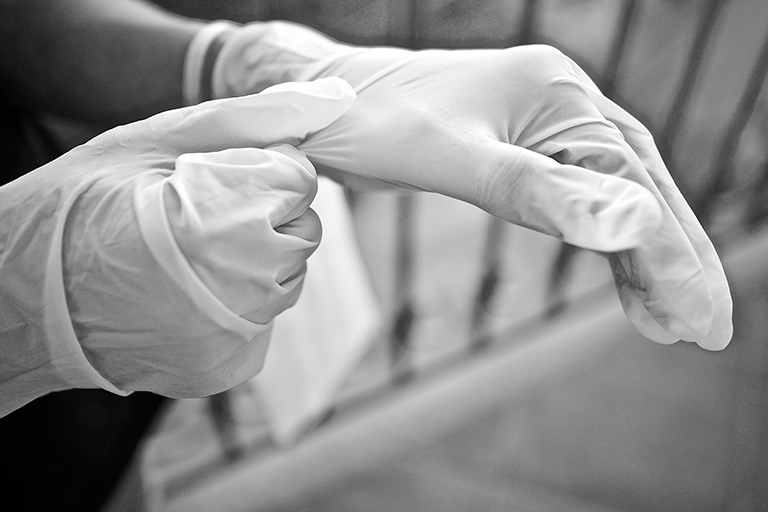
Professor Qiang He and Assistant Professor Shuai Li have received one of the new One UT Collaboration and Innovation Grants for their proposal entitled “Pathogen Transmission Pathway Identification by Fomite and Behavior Monitoring.”
The objective of this research is to create and test new sensing, computational, and mechanistic tools to characterize the complex interrelationships between human behaviors and fomites, which are inanimate objects that become colonized with microbes.
Fomites serve as important intermediaries for transmission of pathogens to/from humans, so for settings such as schools, daycare centers, and long-term care facilities, understanding fomite transmission could play a crucial role in slowing infectious pathogens and helping to prevent economic calamity.
Each year, the flu alone costs the US healthcare system and society an average of $11.2 billion, while the costs stemming from the novel Coronavirus are predicted to extend well into the trillions.
With the ultimate goal to mitigate the spread of infectious diseases, the specific aims of the project are threefold:
- Produce data-driven modeling of occupant contact with surfaces;
- Space and time monitoring of microbial pathogens on fomites;
- Identification of transmission pathways and patterns.
“If successful, the in-depth understanding acquired from this research can be exploited to develop bio-informed strategies for sustainable management of the built environment,” said He, one of the principal investigators on the project. “With the ability to reduce pathogen exposure, we can have a great impact on public health.”
The One UT grant was instituted to support innovative ideas, create collaborative opportunities, and advance the university in three key areas–student success, research and outreach, and engagement. To fund this initiative, the UT System is investing up to $500,000 in each of the three categories, up to $1.5 million total.